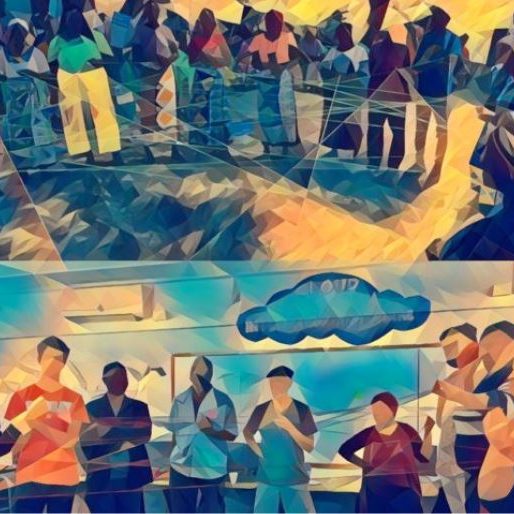Grant Program
Research Grants
Grantee Name
David Johnson
Grant Start Date
29 December 2022
Grant End Date
28 December 2024
Amount Funded
$200,000.00
RESEARCH QUESTION
The question that is addressed in this research is: Can a decentralized mutual credit-based community voucher combined with a community network and localized services incentivize (i) custodianship of commons infrastructure, (ii) creation of more locally generated digital content, and (iii) act as a catalyst to the stability and expansion of a local market?
Responding to these questions is a way to measure the effectiveness of a project that aims to solve the lack of access or dependency on costly cellular-based broadband access, lack of local economic trade and lack of community-centric digital content and services, with a set of interventions – (a) community-owned mesh networks, (b) a local micro-cloud services platform, and (c) a local mutual-credit based community currency (voucher) for enabling local trade in physical and digital goods and services. This integrated system is called CIC-iNethi (combines the Grassroots economics Community Inclusion Currency platform and the iNethi platform).
The mutual-credit-based community currency/voucher is based on blockchain technology and provides all the benefits of distributed ledger technology (immutability, enabling small micro-transactions between end-users or machines, and providing a public transparent view of all blockchain transactions that occur in a community to help understand economic patterns in the community). Grassroots Economics (GE) have a Community Inclusion Currency (CIC) platform and ecosystem that allows a community to create a mutual-credit-based community currency/voucher backed by goods and services offered in the community. Users create digital wallets linked to their phone numbers and use USSD to interact with their wallets. In 2022, the GE CIC system was interfaced with the iNethi micro cloud and WISP platform (this made it possible to purchase Internet coupons or other digital services on iNethi with the community vouchers).
Incentives are put in place to encourage buying community vouchers with fiat currency, and users who host wireless mesh radios (custodians of infrastructure) using a local community voucher and content creators in community vouchers are auto-rewarded in proportion to the amount of time put into the task. The community vouchers are used to purchase physical and digital local goods and services that the community members sell.
WHY IS THIS RESEARCH IMPORTANT?
Moving towards an Internet system that embeds key philosophies of being decentralized, open, and trustless on both the network and financial layer can create more opportunities for low-income communities. A mutual credit-based community voucher integrated with a community-owned network incentivizes users to become better custodians of commons infrastructure, create more locally generated digital content, and expand the use and stability of a community voucher to support wider local markets that embrace local digital and physical goods and services.
The ultimate goal is to improve the socio-economic conditions in the communities by amplifying local economies and providing mechanisms for users to build, manage and monetize their own physical and digital commons infrastructure.
This research allows us to gain insights into the effectiveness of the project intervention in Ocean View (South Africa) and Kilifi (Kenya). The research creates datasets that can be used by the research community to understand how to set rules and contracts, and policies in a network to ensure fairness (exposing imbalances, abuse, etc.), good custodianship (communities taking care of physical and digital commons infrastructure), openness (making sure there is no imbalance in knowledge about code or data), and stimulating growth (systems that reward good custodianship and help grow locally relevant content and digital infrastructure).
METHODOLOGY
The research blends together quantitative and qualitative methods.
Quantitative is in the form of network measurements (traffic growth/user uptake of local digital content that can be sold/purchased with a community voucher), network management system data (growth of number of users and sale of Internet coupons and other digital assets using a community voucher); uptime of digital infrastructure that has uptime-linked rewards in the form of community vouchers; and blockchain transactions that expose the amount of financial benefit to community members and distribution of these transactions amongst wallet owners.
Qualitative data is in the form of semi-structured interviews with community members before they create a digital wallet to understand current access and financial challenges; semi-structured interviews with users who receive community voucher rewards for being custodians of mesh hardware and other digital infrastructure to understand if the goal of providing community voucher rewards to incentivize good custodianship has been met; and semi-structured interviews with end users who purchase Internet coupons, other digital services and general goods and services in the community with community vouchers through the lifecycle of the project to understand if the system has provided affordable access and if community voucher has been used beyond purchasing Internet access.
MEDIA AND PUBLICATIONS
See below for research publications and other articles related to the research.
https://www.inethi.org.za/category/blog-post/
https://www.intgovforum.org/en/filedepot_download/92/20438
https://www.inethi.org.za/kenya-hackathon/
https://www.isocfoundation.org/bcc-podcast/
https://cscwnetworks.wordpress.com/
https://www.inethi.org.za/2022/06/13/workshops-on-community-currency-in-ocean-view/
https://cnlearning.apc.org/resources/community-networs-meet-community-currencies/
https://dl.acm.org/doi/10.1145/3588001.3609372
https://www.inethi.org.za/2024/02/08/workshop-on-krone-as-a-reward-system/

